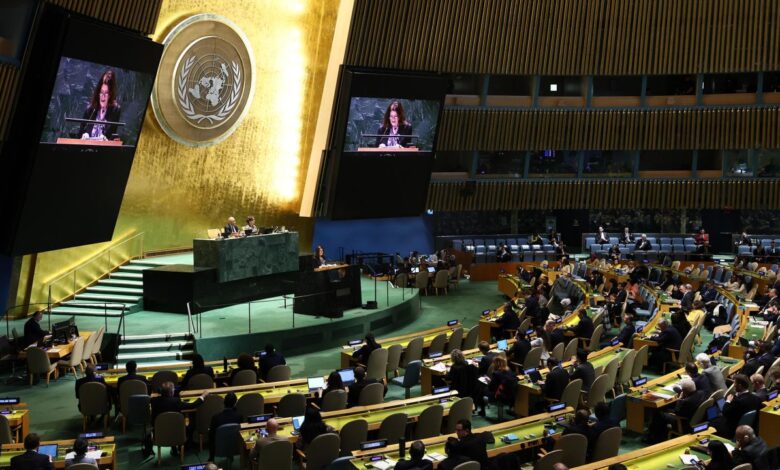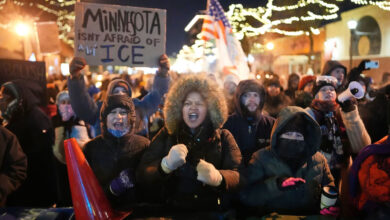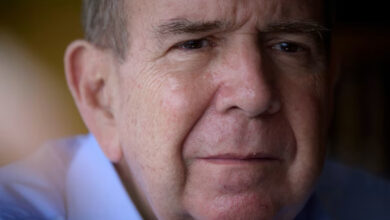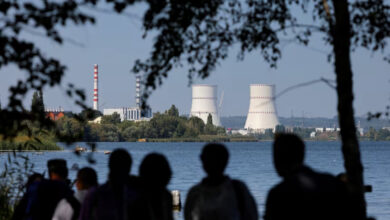
The United States joined Russia to vote against a UN General Assembly resolution condemning Russia’s war against Ukraine Monday in a stunning shift from years of US policy.
The vote against the Ukrainian and European-backed resolution saw the US at odds with its longtime European allies and instead aligned with the aggressor in the war on the three-year anniversary of Moscow’s full-scale invasion of Ukraine.
The US again voted the same way as Russia later Monday on a US-proposed UN Security Council resolution that did not call the Kremlin the aggressor or acknowledge Ukraine’s territorial integrity. The resolution passed without the support of five European members of the Security Council.
The US’ shocking alignment with Russia at the United Nations came as the Trump administration has pursued discussions with Moscow about ending the war. President Donald Trump has ratcheted up his rhetoric towards Ukrainian President Volodymyr Zelensky. European partners have rushed to adjust to the shift in US policy and French President Emmanuel Macron met with Trump at the White House Monday.
The European-backed General Assembly resolution was adopted with 93 votes in favor. It notes “with concern the full-scale invasion of Ukraine by the Russian Federation has persisted for three years and continues to have devastating and long-lasting consequences not only for Ukraine, but also for other regions and global stability” and “calls for a de-escalation, an early cessation of hostilities and a peaceful resolution of the war against Ukraine.”
It also demands that Russia “immediately, completely and unconditionally withdraw all of its military forces from the territory of Ukraine within its internationally recognized borders.”
The US had introduced a rival General Assembly resolution, which did not call Russia the aggressor or acknowledge Ukraine’s territorial integrity.
It “implores a swift end to the conflict and further urges a lasting peace between Ukraine and Russia.” It mourns “the tragic loss of life throughout the Russia-Ukraine conflict” and reiterates “the principal purpose of the United Nations, as expressed in the United Nations Charter, is to maintain international peace and security and to peacefully settle disputes.”
The US introduced the same resolution at the Security Council. It passed with 10 votes in favor, including from Russia, and five abstentions after European efforts to delay the meeting failed. Proposed amendments to strengthen the language, which were added to the US General Assembly resolution, did not pass in the Security Council due to vetoes from Russia.
Russian Ambassador to the UN Vasily Nebenzya commended the brief, three-paragraph US resolution as a starting point for future efforts toward a peaceful settlement.
“The text we passed is not an ideal one, but in essence, it is a first attempt to have a constructive and future-oriented product by the Council which is talking about the path to peace, rather than blowing the conflict up,” he said.
US charge d’affaires Dorothy Shea called the resolution’s passage the Security Council’s first action “to firmly call for an end to the conflict.”
“This resolution puts us on the path to peace. It is a first step, but a crucial one, one of which we should all be proud now we must use it to build a peaceful future for Ukraine, Russia and the international community,” she said after the vote.
However, Shea’s European counterparts had strong words in response to its passage.
“There will be no peace and security anywhere if aggressions are rewarded, and if the law of the jungle wins,” French Ambassador to the UN Nicolas de Rivière said.
“No one wants peace more than Ukraine, but the terms of that peace matter,” UK Ambassador to the UN Barbara Woodward said. “Only a just peace, one that honors the terms of our charter, will endure.”
“And the terms of the peace must send a message that aggression does not pay. This is why there can be no equivalence between Russia and Ukraine in how this council refers to this war,” she said. “If we are to find a path to sustainable peace, the Council must be clear on the war’s origins. We also owe it to the people of Ukraine, who have suffered so much.”
“Russia chose to launch a war of aggression against a sovereign state, but again, today, is seeking to obfuscate that fact,” Woodward said.
“What, how and on what terms this war ends can only be decided by negotiations with Ukraine. No peace will be sustainable without Ukraine’s consent,” she said.
Earlier in the day at the General Assembly, Shea had urged member states to back the US resolution and said the US “cannot support Ukraine’s resolution, and we urge its withdrawal in favor of a strong statement committing us to end the war and work towards a lasting peace.”
The US ended up abstaining on the vote for its own resolution at the General Assembly after several amendments were passed ahead of the vote to strengthen the language against Russia and reaffirm Ukraine’s territorial integrity.
This story has been updated with additional details.
CNN’s Michael Rios contributed to this report.




